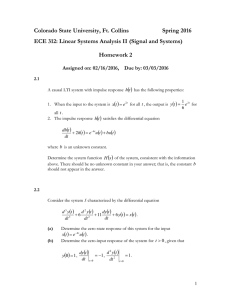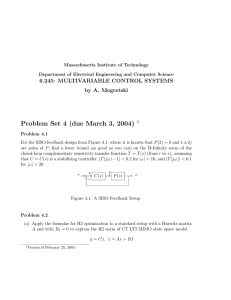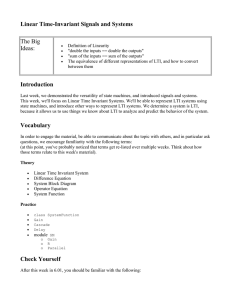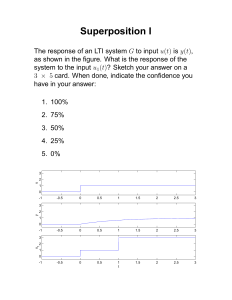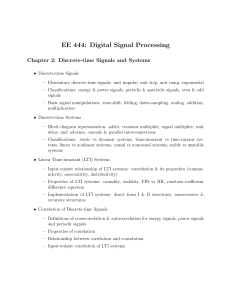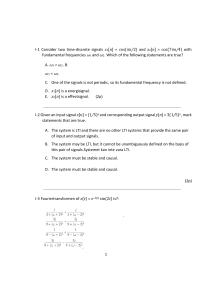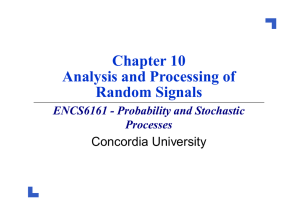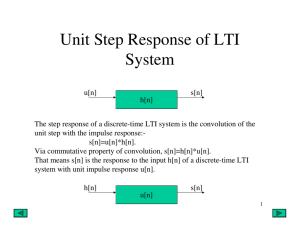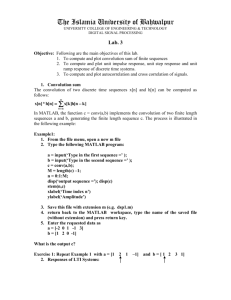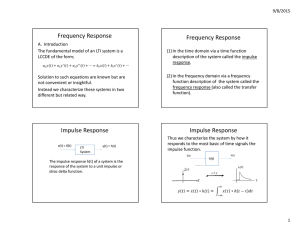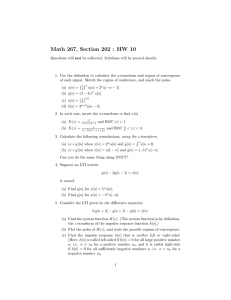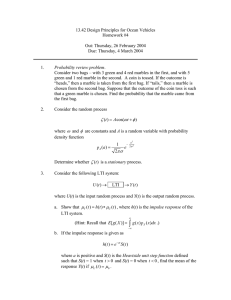HW 2
advertisement
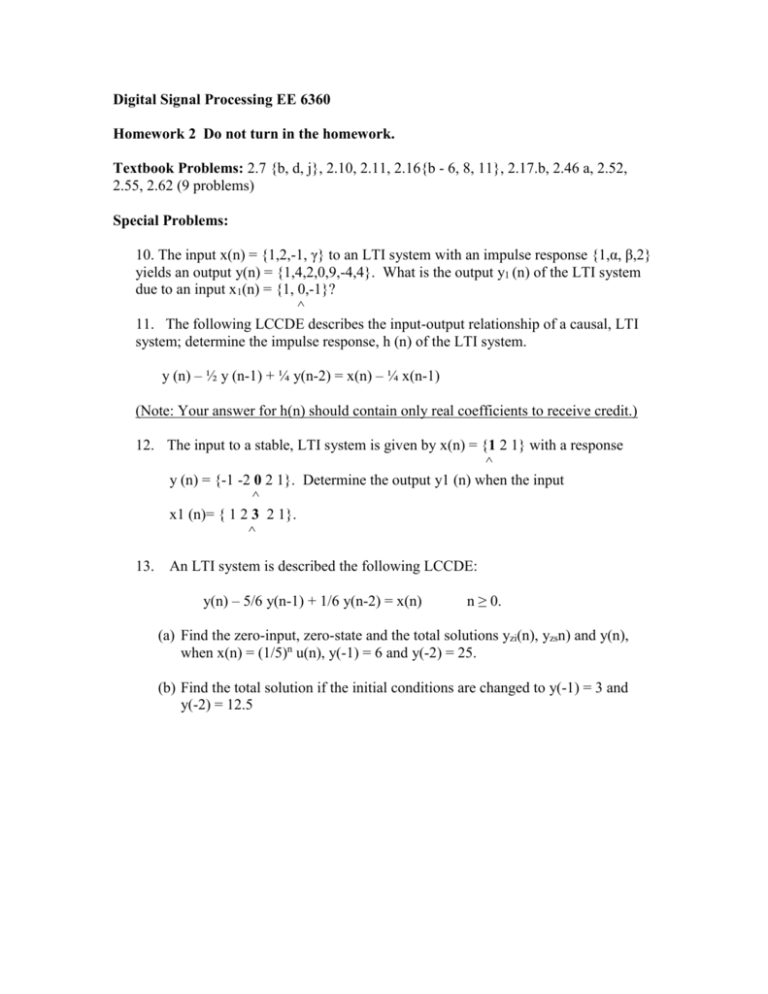
Digital Signal Processing EE 6360
Homework 2 Do not turn in the homework.
Textbook Problems: 2.7 {b, d, j}, 2.10, 2.11, 2.16{b - 6, 8, 11}, 2.17.b, 2.46 a, 2.52,
2.55, 2.62 (9 problems)
Special Problems:
10. The input x(n) = {1,2,-1, γ} to an LTI system with an impulse response {1,α, β,2}
yields an output y(n) = {1,4,2,0,9,-4,4}. What is the output y1 (n) of the LTI system
due to an input x1(n) = {1, 0,-1}?
^
11. The following LCCDE describes the input-output relationship of a causal, LTI
system; determine the impulse response, h (n) of the LTI system.
y (n) – ½ y (n-1) + ¼ y(n-2) = x(n) – ¼ x(n-1)
(Note: Your answer for h(n) should contain only real coefficients to receive credit.)
12. The input to a stable, LTI system is given by x(n) = {1 2 1} with a response
^
y (n) = {-1 -2 0 2 1}. Determine the output y1 (n) when the input
^
x1 (n)= { 1 2 3 2 1}.
^
13.
An LTI system is described the following LCCDE:
y(n) – 5/6 y(n-1) + 1/6 y(n-2) = x(n)
n ≥ 0.
(a) Find the zero-input, zero-state and the total solutions yzi(n), yzsn) and y(n),
when x(n) = (1/5)n u(n), y(-1) = 6 and y(-2) = 25.
(b) Find the total solution if the initial conditions are changed to y(-1) = 3 and
y(-2) = 12.5
